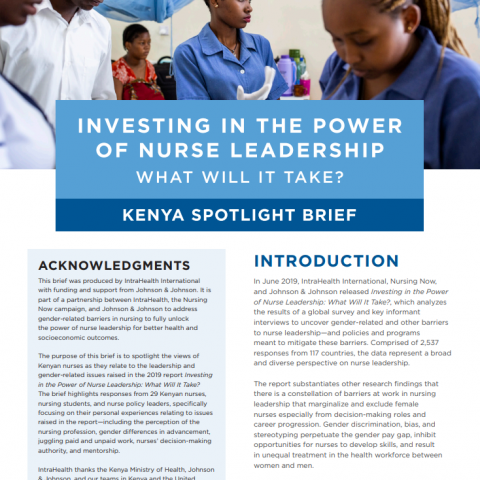Where We Work
See our interactive map

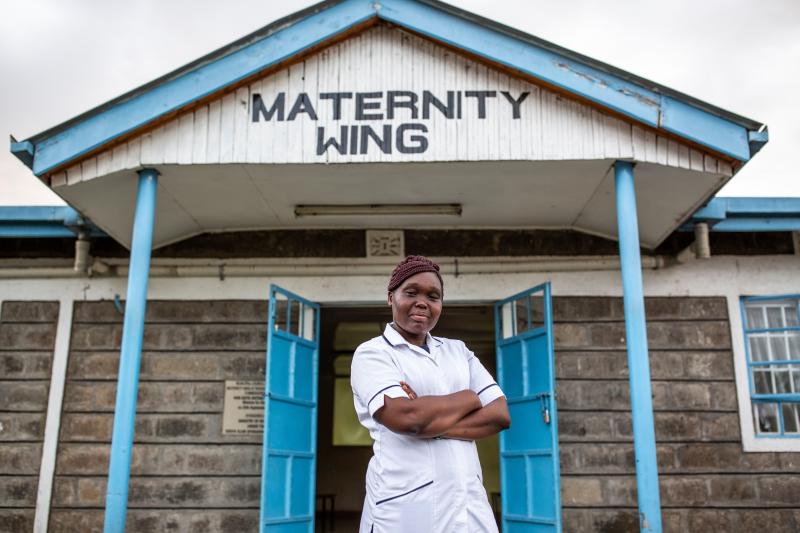
Alice Boit in front of the maternity wing at the Rhonda Dispensary and Maternity in Nakuru County, Kenya. Photo by Patrick Meinhardt for IntraHealth International.
Most of our nurses in Kenya are going abroad. If I could tell policymakers one thing, it would be this.
Alice Boit oversees more than 40 staff at the Rhonda Dispensary in Kenya, from nurses to clinical officers, lab technicians, and a pharmacist. She maintains the day-to-day operations to ensure her community in Nakuru Town County, Kenya, can access the health services they need. We first met her when she participated in a training conducted by our USAID-funded Human Resources for Health (HRH) Kenya Program on long acting reversible family planning methods. Last February, we sat down to talk to her about how she manages it all.
This piece is part of our special content series, Nurse Leadership: In Their Own Words.
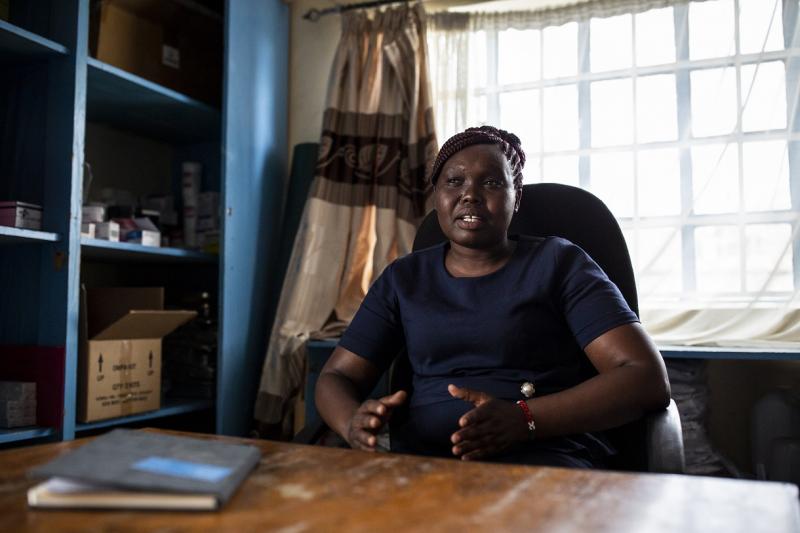
Alice is the facility in-charge at the Rhonda Dispensary in Nakuru County, Kenya.
After high school, I was admitted into a nursing school in the western part of Kenya, and I went for four years. After that, I graduated, and my career and my passion were fulfilled.
I worked in Kuresoi. I was working in the South, interior parts of the country. Then I came to Rhonda Dispensary this year. I think God had favors with me, my career. I was selected as the nursing officer of this facility. Then after one year, I'm the facility in-charge of nursing and I’m in charge of every staff in this facility.
I think my promotion had everything thing to do with leadership, how you carry yourself as a person, how you as a person treat other people, and how you yourself are dedicated to your job. So for me, I love my job. I love nursing; I love being a leader, and I'm very passionate about it.
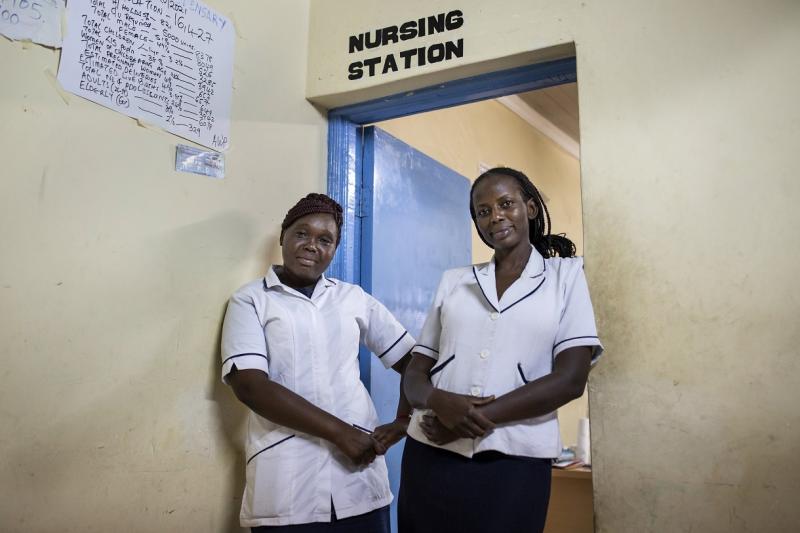
She has to understand how the staff relate to each other so everyone works in harmony during their shifts.
When you're the nursing officer in charge and the facility in-charge, you have to do and plan for everything. You have to plan how the commodities and human resources are going to work day and night. You have to plan how the pharmaceuticals and the non-pharmaceuticals will be supplied to the facility.
I have to understand how staff relate to each other; their social life, their family life, their working life. They are supposed to work in harmony in the workplace. Because at the end of the day, this is the place they spend most of their time.
As a nurse, most people don't understand that nurses can be leaders. Most people may just understand that leaders are doctors, clinical officers, and others like that.
In the workplace, we have doctors here and we have public health officers. So when you are selected to be a leader as a nurse, they tell you, "You are this. You are nurse. You're not supposed to lead us. Go and conduct deliveries." So there is a level of discrimination.
I try to make a harmonious working environment. “Equality,” I tell them, “Embrace equality.” When you are in such a facility we are all here for very long time, so we are a family. So at the end of the day they will have to embrace the nurses and be able to work together as a family.
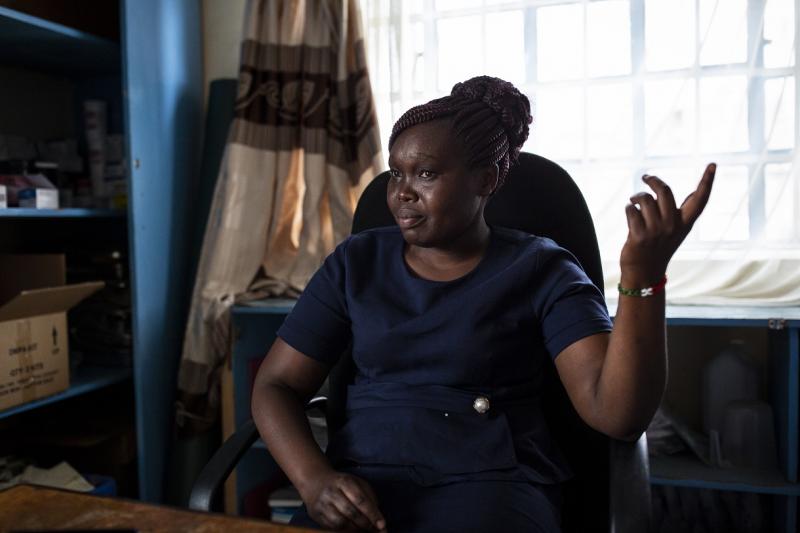
But she's learned how to balance her time as a mother, as a wife, as a nurse, and as a leader.
I balance my family time and my work time. And at home, I have to explain to my spouse what I have to do at work. So I think that makes me balance both the duties as a mother, as a wife, as a nurse, as a leader.
So if nurses are on night duty, they have to talk to their families. Because in nursing we work around the clock. So even our family should understand that nurses are supposed to work day and night.
My spouse also takes some of the childcare duties. He cooks for the children, he cleans the house and takes care of the children. He understands that my work goes around the clock.
But for a lot of nurses, their husbands don't allow night duties. If the husband of a nurse doesn't want his spouse to be on night duty, sometimes we even call the spouse to explain what nursing is, because most spouses don't understand. They think the nurses are lying; they're not going on duty.
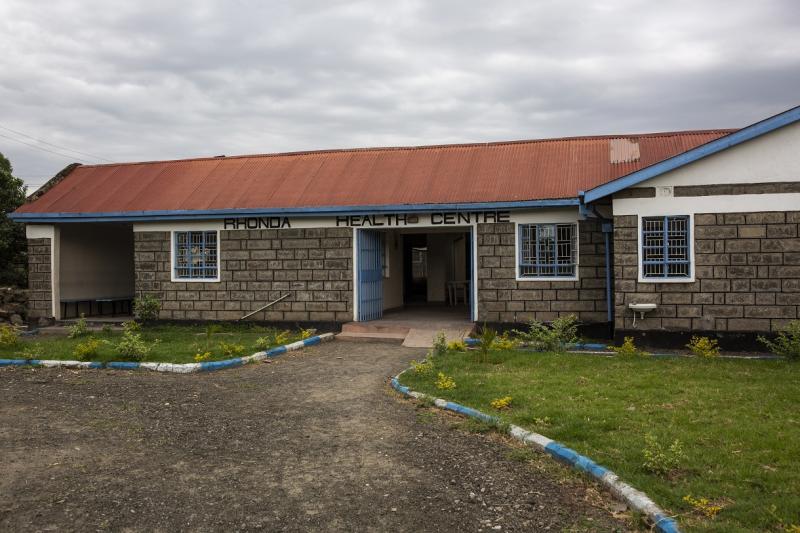
Alice is very proud of the health facility, which supports 29,000 clients.
We have many challenges in this facility. We don't have enough finances. We don't have enough staff. We are working with 29,000 people in this catchment area.
But I’m very proud of this facility. Most of our mothers are coming to deliver at this facility because we embrace and welcome them. We serve them well. The other thing is the beautification of this facility. As you see the facility is so beautiful. So landscaping the facility and making it beautiful has made me proud.
When I came to this facility, the community was not embracing it. We had a lot of insecurity. So we thought of putting a perimeter wall and some electric barbed wire installation for security purposes. It makes me proud, because now our mothers are safe and our nurses are safe at night.
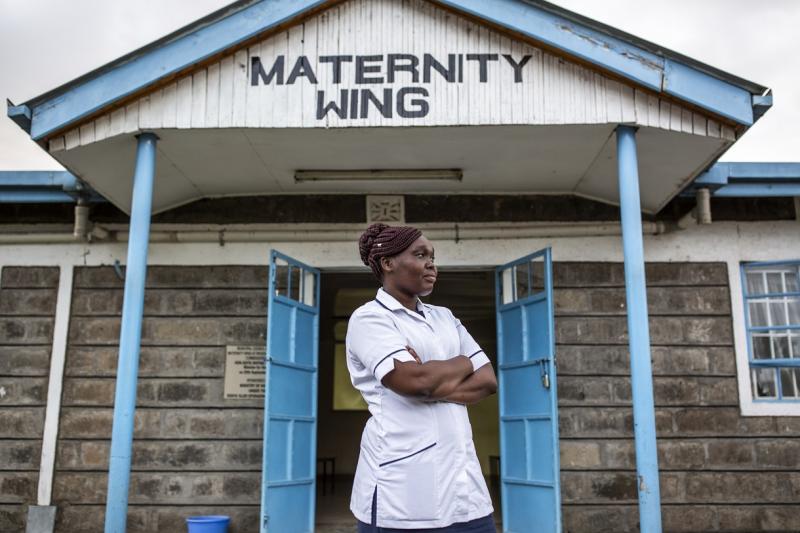
She says nursing is a calling, but policymakers must support nurses so they stay in Kenya.
If I could tell policymakers and stakeholders something, I would say nursing is truly a calling. But even I'm aware that most of our nurses in Kenya are going abroad. So if they can pay nurses well, it would motivate them to stay in Kenya and even live well. But if you are paid poorly, you'll work poorly, and you are not going to deliver the best to the clients.
The other thing is that they should provide some quality housing for the nurses. Because most of them leave their families to come to work. So if they can live near the facilities, they can deliver services to the community.
If policymakers strengthen our union so that when we have some grievances as nurses, we have a body that can talk to the government. If the Kenya National Union for Nurses can be strengthened, our voices will be heard countrywide.
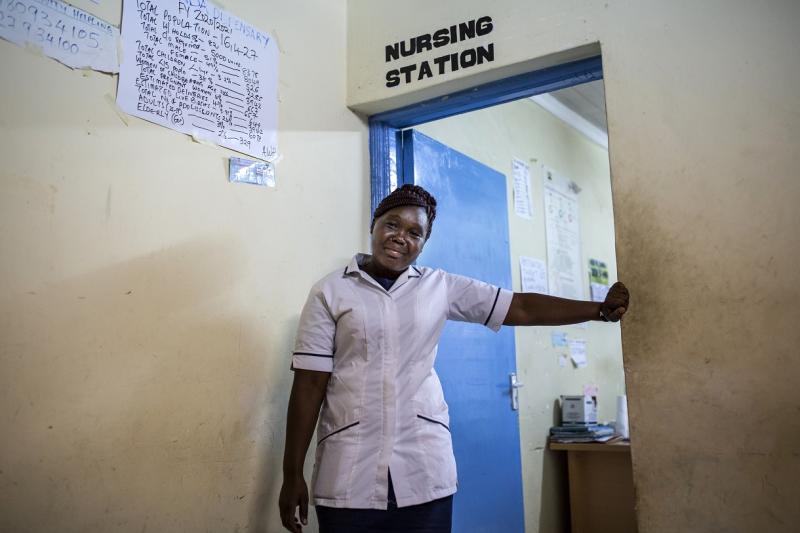
Photo by Patrick Meinhardt for IntraHealth International.
Women are strong. Women are heartbreakers. Women are mentors. Women are everything. Women are mothers. If the community embraces women as leaders in the community or even globally, I think nursing and every career will go on well to be respected. And even the country will grow well if women are leaders.
READ what nurses in Kenya say about leadership and gender-related issues in Investing in the Power of Nurse Leadership: Kenya Spotlight Brief.
Also READ: How One Nurse Leader Transformed Family Planning Services at This Kenyan Health Facility.
Carol Bales and Samantha Rick interviewed Alice Boit just before the COVID-19 pandemic lock down. Katherine Seaton edited Alice’s interview for clarity and length. All photos by Patrick Meinhardt for IntraHealth International. All work related to this post and the Kenya brief funded by a grant from Johnson & Johnson Foundation.
Get the latest updates from the blog and eNews
Read what nurses in Kenya say about nursing leadership in Investing in the Power of Nurse Leadership: Kenya Spotlight Brief. Twenty-nine nurses, nursing students, and nurse policy leaders shared their personal experiences including gender differences in advancement, juggling paid and unpaid work, decision-making authority, and mentorship.
